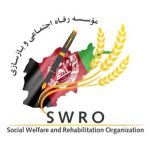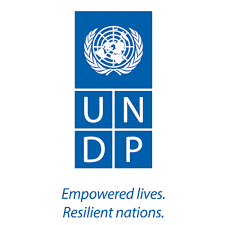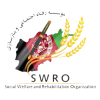


Summary
A total of 60 community members were invited form the advocacy network, which would comprise religious actors, tribal elders, and youngsters, three from each target areas of the Sorubi district’s. The event commenced with Qari Nisar Ahmad, a Community Mobilizer for the SWRO/AWSDC in the Sorubi distract, reciting a number of verses from the holy Quran.
Next, Asadullah Rashid invited Nahazatyar, the SWRO organization’s trainer/facilitator for the Sorubi office, to greet the participants and ask them to come up with suggestions on minorities’ rights in their villages. Nazhzatyar had the attendees to identify and discuss significant issues that divide minorities in communities Furthermore, Nahazatyar encouraged the audience to highlight certain communities that have not been completely engaged in community socio-development, causing conflict or grievances. Religious scholars debated minorities’ rights from Sharia perspectives, as Mawlawi Sefatullah Buzarg said,”Sharia prevents depriving individuals of civil rights in human societies.”
Though such behaviors have no basis in Sharia, but continue to take place in our communities; unless community members discuss these harmful practices, we would not see improved communities.
Women are also deprived their fundamental rights, which are enshrined in both Sharia principles and Afghan constitutional law.
Most women are now not permitted to attend school, therefore we must resist such practices and engage communities to promote women’s education.”
The attendees constructed and developed its ideas and thoughts in the shape of team work to work on inclusive community development and prosperity in a methodical manner.
Participants’ commitments.
All of us should appreciate ideological differences and respect to each other’s opinions, especially if they are antagonistic.
- Participants are encouraged to embrace minorities and gender diversity while delivering services.
- Participants are encouraged to embrace minorities and gender diversity while delivering services.
- Reciprocal understanding and compassion is required.
- All stakeholders are urged to actively engage and feel free but politely offer their suggestions and recommendation.
- Respondents are compelled to communicate their personal experience, differences, and similarities on the agenda’s specific topic.
- Listen to others carefully, although if you disagree with their positions.
- Recognize the dignity and value of every participant by practicing insights, honor, sympathy, and open mindedness during the discussions.
- Everyone is treated equally, regardless of ethnicity, sexuality, religious sect, ethnic origin, language, marital status, sexual orientation, age, socioeconomic situation, disability, political affiliation, or any other distinctive attribute.
- Recognize all attendees’ cultural practices, traditions, and customs, and try and avoid acting forms that are not acceptable in a specified cultural environment.
Participants quotes on the civil rights of minorities and promoting social cohesion.
Mawlawi Noor Mohammad a religious actor, went on to say: “Youth plays a critical part in a country’s development progress and devastation.
Furthermore, they could take an active part in Afghanistan’s peace process.
Youth can create a lot of beneficial improvements if they are given significant opportunities to use their participation in peacebuilding appropriately.” Malik Yar Muhammad a tribal elder expressed gratitude to the implementing organization SWRO for organizing such a useful program at the district level and involving the most important individuals in the discussion.
“I think that this session would bring beneficial improvements to the Sorubi district,” he stated.”Local Leaders may play an important role in ensuring the minorities civil rights since they will-versed of the minorities’ civil rights In the target communities,”
Stated Mr. Hajji Ameen jan head of youth council from Abdul Rahimzai community.
“Negotiation is the greatest approach to address issues between individuals in the district,” stated Nabi Jan a community district council member.
All of us in this program should commit to delivering the topics we discussed concerning the civil rights of the minorities to our family, friends, and nearby residents who listen to us.”
According to Mawlawi Khalilurahman a Community Elder, “Ulama (Religious Leader) may play a vital role in promoting social peace to the community by informing everyone that there is goodness and blessing in peace and pain and agony in conflict.
It will help people realize the benefits of peace and the harmful consequences of war.”
Malem Ali Khan. “Peace is a vital requirement for the existence of all of us,” he remarked, thanking the participants. We must strive hard to achieve peace. No one else can offer us peace unless we make genuine attempts. Each of us should be aware of our responsibility in promoting peace and social cohesion and togetherness.”
Feedback on women rights
The majority of the participants’ agreed on establishing a committee of the religious scholars, tribal elders and government officials comprising a spectrum of views, to examine possibilities for incorporating equal rights for women. This committee should also consider means for the implementation of these rights, and make recommendations to that end;
- compiling and translating the laws and treaty Obligations of Afghanistan which pertain to women, along with traditional practices, Shari’a Interpretations and practices from other Muslim nations; and
- addressing women’s rights in practical terms. A focus on education and employment opportunities is more likely to benefit women than polarizing debates about ‘rights’.
Feedback on Advocacy Network Session
The majority of the participants praised the SWRO field staff manner and stated that the trainer utilized sample words so that everyone could grasp them. Attendees also stated that they managed such event in an effective manner and controlled the event very nicely, provided opportunity to the participants to
In addition, the participants enjoyed the eloquence lecturer exhibited in expressing the agendas topics
Attendees’ pledges to pass on what they’ve learned
70% of the event attendees pledged sharing the information the topics they discussed with each other’s in their communities through religious actors’ pulpits as well as through wedding ceremonies, Sporting events, funerals, and other public gathering locations.
Findings
During the specified workshop periods, a capacity of 40 people was built in the mentioned subjects. The audience was given the opportunity to ask lecturer relevant conflict and peace questions. Attendees were very active as they exchanged ideas about the topics, and they did not stray from the agenda topics.
Feedback on lecturer
The majority of the participants praised the trainer’s manner and stated that the trainer utilized sample words so that everyone could grasp them. Attendees also stated that the lecturer gave them the opportunity to express any related disagreements queries during all of the lectures.
In addition, the participants enjoyed the eloquence lecturer exhibited in expressing the agendas topics
